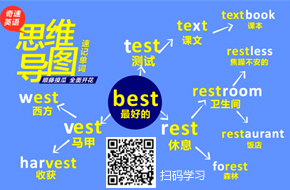Unit1 Can you play the guitar? 知识梳理
13. on the weekend/on weekends 在周末
3. be good at doing sth.= do well in doing sth.
9. like to do sth. =love to do sth.
—Yes, I can./No, I can’t.
2. —What club do you want to join?
—I want to join the chess club.
3. You can join the English club.
4. Sounds good./That sounds good.
5. I can speak English and I can also play soccer.
6. Please call Mrs. Miller at 555-3721.
I want to join your organization (组织) to help kids with sports, music and English.
My name is Mike. I am 15 years old. I'm a student in No. 1 Middle school. I can play the guitar well. I can sing many songs. I can swim and speak English well, too. I think I can be good with the kids. I also do well in telling stories.
I hope to get your letter soon.
speak,say,talk和tell的用法归纳:
1) speak 既可以作不及物动词也可以作及物动词,它的意思是“说、讲话”,作及物动词的时宾语是某种语言。
My father is speaking. 我的爸爸在讲话。(不及物动词)
My sister can speak French. 我的姐姐会说法语。(及物动词)
2)say是及物动词,它的意思是“说”,后面要有说的内容。
I have to say sorry to the teacher. 我不得不向那位老师道歉。
Can you say it in English? 你能用英语说吗?
3)talk意为:“交谈、谈论”,常作不及物动词。后面用介词to/with, 表示“与……谈话/交谈”;接介词about 时表示“谈论……”;接of时表示“谈到/起……”。
What are you talking about? 你们在谈论什么?
Who are you talking with? 你在和谁谈话?
4)tell的意思是“告诉、讲述”,经常用动词短语tell sb. sth. 表示“告诉某人某事”或tell sb. to do sth. 表示“告诉某人做某事”。
Please tell your brother not to swim here.
My grandmother often tells me some stories.
or来连接两个(或多个)并列成分。在否定句中表示“和”的时候,通常用or。此时,只在or前面的列举项前加no或者not, 但是如果要用and连接,则and前后的列举项都要加not 或no。
Do you like rice, milk, apples or bananas?
I have friends, but I have no sisters or brothers.
= I have friends, but I have no sisters and no brothers.
I’m good at English. 我擅长英语。
Tom is good at playing football. 汤姆擅长踢足球。
【拓展】be good at 相当于词组do well in,在句子中常可以互换。
She is good at Chinese. = She does well in Chinese.
1)play和球类、棋类等运动项目搭配时,表示“参与运动”或“进行比赛”,此时名词前不加任何限定性的词。
She can play the piano. 她会弹钢琴。
I play basketball every day. 我每天都打篮球。
2)play与各种乐器搭配,表示“演奏;弹奏;吹奏”,此时乐器名称前往往会加上定冠词the。
Let’s go to play on the playground. 我们到操场上去玩吧。
Don’t play with fire. 别玩火!
I like watching TV plays. 我喜欢看电视剧。
1)join 意为“参加,加入”,可以指加入某种社团或者组织,成为其中的成员。
Yao Ming joined the NBA. 姚明加入了NBA。
2)“join + 指人的名词或代词”,意为 “加入……之中”。
Will you join us for lunch? 和我们一起吃午饭好吗?
3)“join + in + 活动类名词” 意为 “参加……(活动)。”
Can you join in the game? 你能参加这个游戏吗?
1) also也,用在肯定句中间,位于be动词、助动词或情态动词后,行为动词前。
We also like playing football. 我们也喜欢踢足球。
He has a lot of pen pals, too. 他也有很多笔友。
1)“make friends”意为“结交朋友”;“make friends with sb.”指“和……交朋友”。
We can make friends with them. 我们可以和他们交朋友
2)“make sb. / sth. + adj./v.”意为“使某人……”。
The good news makes us happy. 这个好消息使我们很高兴。
His story made us laugh. 他的故事让我们笑了。
1)paint 做动词时,意为“给……涂色”,指用颜料画画,如水彩画或者水墨画。
Please paint the wall green. 请把墙涂成绿色。
2)paint 做名词时,意为“油漆,颜料,绘画作品”。
The paint is very popular. 这颜料很流行。
3)draw通常指用铅笔,钢笔或者粉笔画,一般并不涂上颜料。
常用结构是“show sb. sth. / show sth. to sb.”,意为“把某物展示给某人”。
Please show me your ticket. 请出示您的票。
3. draw a picture _______
Ⅱ. 根据句意、首字母或汉语提示,写出正确的单词。
1. -Can you s______ French? -Yes, I can.
2. I c______ go to your birthday party. My parents ask me to see my grandparents.
3. He likes to play basketball. So he wants to j_____ the basketball club.
4. My sister can’t play the computer game o_____ chess.
5. I know a l_____ about English history.
6. Can you s______ your family photo to me?
7. Please come to Students’ Sports C______.
8. We n_____ help at the old people’s home.
9. They can t_____ you stories and you can help each other.
10. We w______ students for the school show.
1. Welcome you to join our ______ (swim) club.
2. He is a very______ player and he can play soccer very ______ (good).
3. He _______ (not like) the school show.
4. My sister likes singing and ______ (dance).
5. She likes music very much, so she is good at ______ (sing).
6. Jack’s father and mother are _______ (music).
7. Do you want _____ (join) the music club?
8. Can you ______ (show) me your picture?
9. Our teacher ______ (be) good at singing.
10. He is my favorite basketball ______ (play).
Ⅱ. 根据句意、首字母或汉语提示,写出正确的单词。
1. Can you play the guitar?
这个句式的陈述句是: “主语+can / can’t+动词原形+….”。
I can play football. 我会踢足球。
I can’t play football. 我不会踢足球。
这个句式的特殊疑问句是:“特殊疑问词+can +主语+动词原形+…?”。
- What can you do ? 你会做什么?
-I can sing and dance. 我会唱歌跳舞。
2)“Can+ I / we+动词原形+…?”表示说话人请求对方的许可,询问“可不可以做某事”。
Can you sing me a song? 你能给我唱首歌吗?
Can I use your book? 我可以用一下你的书吗?
“help sb. with sth.”意为“帮助某人做某事”。此处的with是介词,后面可以跟名词。例如:
She helps me with my English. 她帮我学英语。
She helps her mother with housework. 她帮她妈妈做家务。
(1) help sb. (to) do sth. 帮助某人做某事 (动词)
I often help my mother to do some housework.
(2) help oneself to sth. 随便(吃……) (动词)
Help yourselves to some fish, children.
(3) with one’s help 在某人的帮助下 (名词)
With her help, I passed the exam.
1)“be good with sth. / sb.”意为“善于……;精明的”。
The teacher is very good with children.
2) “be good with sth. / sb.”
还可以意为“和……相处的好”;此时和“get on well with”同义。
Mr. Li is good with us. 李老师与我们相处的好。
Vegetables are good for your health. 蔬菜对你的健康有好处。
4. What club do you want to join?
1)本句中的特殊疑问词what在句子中起形容词的作用,后面用名词构成句型“What+名词+一般疑问句?”,是对主语、宾语和表语进行提问。what可以提问人物的身份、姓名、内容、性质和类别,也可以提问事物的目的、价格、数量和效果。
What class are you in? 你在几班?
What color is your bike? 你的自行车是什么颜色的?
2)want to do sth. 意为“想要做某事”。
I want to join the swimming club. 我想加入游泳俱乐部。
①want的其他常见用法有:want sth. 想要某物
She wants a pen. 她想要一支钢笔。
② want sb. to do sth. 想要某人做某事
He wants me to play with him. 他想让我和他一起玩。
Musician wanted for School Music Festival.
Ⅰ. 选择方框内的句子填空格,使对话意思连贯正确。
|
A: Let’s join the music club together!
D: Do you want to join it with me?
E: What kind of clubs do you want to join?
F: Shall we go swimming after school?
|
A: There are different kinds of clubs in our school.
A: I like English, so I want to join the English club. 2
B: Well, I can’t speak English. So I want to join the chess club. 3
A: No, I don’t. I don’t like chess. Do you like music?
B: Oh, yes. I can sing and dance. I like music.
B: Good idea. Why not go now?
A: We can join the music club after class.
B: 5 School work is the first.
1. I can play the guitar.(变一般疑问句)
______ ______ play the guitar ?
2. I want to join the chess club.(对画线部分提问)
______ club ______ you ______ to join ?
3. He can paint.(对画线部分提问)
_______ _______ he ________?
4. Can we take it to the classroom ?(作否定回答)
_______ , _______ ________.
5. He is a student. (改成复数句子)
_______ _______ students.
6. My brother can be good with his classmates. (改为否定句)
My brother ______ ______ good with his classmates.
7. I want to take the books to the room.(改为否定句)
I _______ _______ to take the books to the room.
8. Can you help kids learn swimming?(改为同义句)
Can you help kids ______ ______?
9. Please show me your new watch.(改为同义句)
Please show your new watch _____ _____.
10. Lucy’s brother want to be an actor. (改为一般疑问句)
______ Lucy’s brother ______ to be an actor?
We _______ two singers _____ School Concert.
I want ______ ______ swimming club.
Our ______ ______ is on Sunday.
John can______ the ______.
Mary often ______ me _____ my history.
______ ______ do you want ______ _____?
______ you ______ English?
She is ______ ______ kids.
Can you ______ ______ ______?
1.Here is a photo of my family. Look!I’m watching TV at home. 2. My brother is doing his homework. 3.他每天需要花费两小时的时间完成作业. My sister Rose is reading English books, but her English is not very good. 4.I always help her with her English. My father is reading a newspaper. 5.我妈妈正在厨房里做汤. I have a happy family.
1.___________________________
2. ___________________________
3. ___________________________
4.___________________________
5.___________________________
2.Which / What , do, want
3. It takes him two hours to finish his homework every day.
5. My mother is making soup in the kitchen.
文章来源于网络,如果侵权请及时联系我们删除,奇速英语全国热线:400-1000-028














